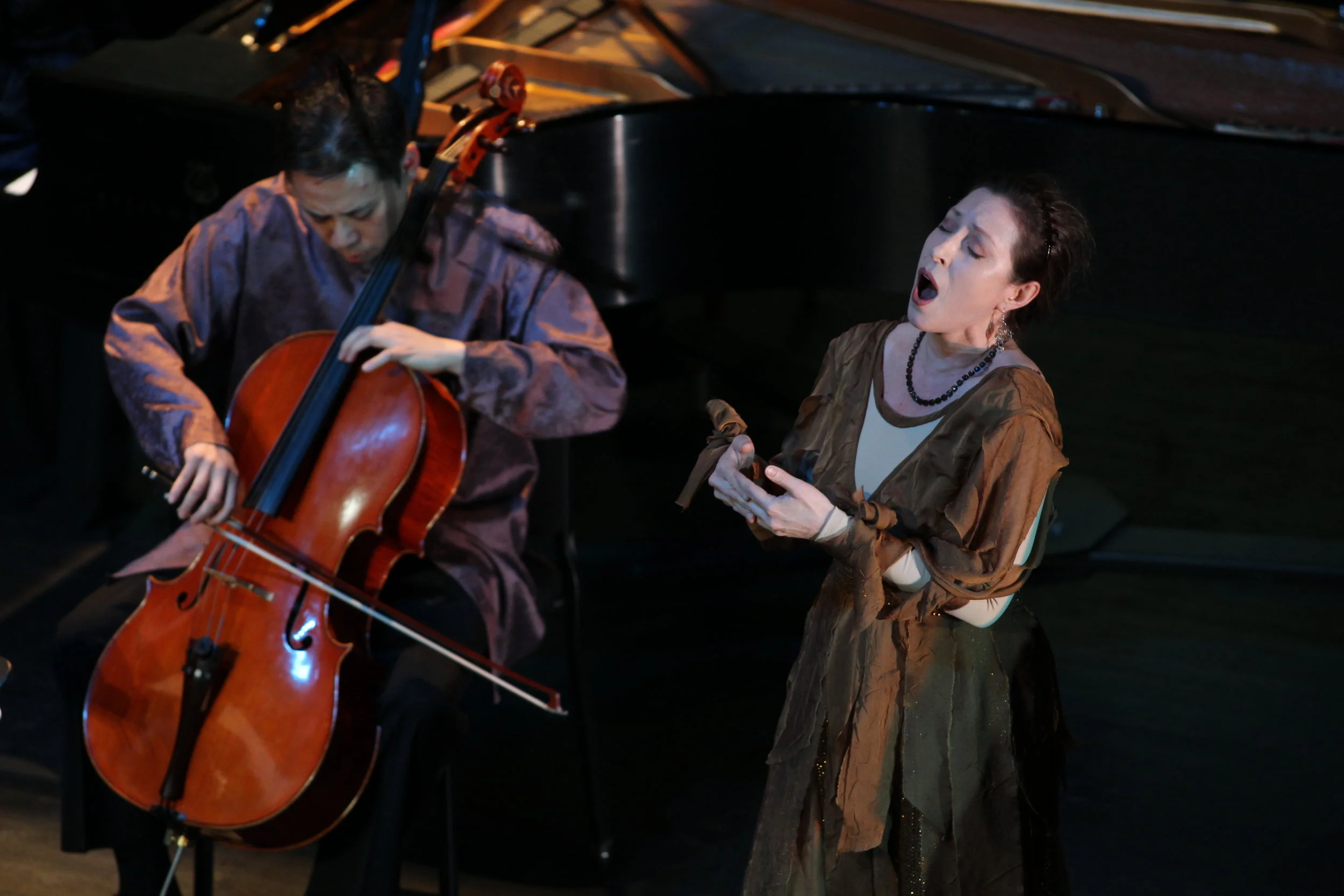words 2
soprano and cello
PROGRAM NOTES:
words 2 is a movement from
Dido Refuses to Speak
Phoenician Dido escaped from her brother (who had murdered her husband) to what is now Tunisia in northern Africa. There, she bought from the inhabitants, as much land as she could “fit into an oxhide”. Ingeniously, she shaved the oxhide into thin strips encompassing an area large enough to found a city – Carthage, of which she became the queen. After fleeing Troy, Aeneas lands on her shores where he and his fellow survivors find refuge. With Cupid’s manipulation, Dido and Aeneas fall in love. Recalled to his divine mission to found the city of Rome, Aeneas abandons Dido, and as she watches his ships sail off, she builds an escarpment and immolates herself. Later, in a pilgrimage to the underworld, Aeneas discovers Dido and attempts to talk to her – Dido refuses to speak.
What would Dido say? As she watched his ships depart? As she listened to his story? As she concocts the scheme to expand the oxhide and found a city? These were the kinds of questions to which Linda Gregerson eloquently and powerfully imagined answers – words. A collage of memories, reflections, and moments create a portrait.
Linda Gregerson (on Dido): “... in Virgil’s epic and its many heirs, she is at once an agent of empire and its most conspicuous discard, a figure of collusion and a searing example of collateral damage. We are less interested in elaborating the story of erotic passion for its own sake than in using that passion as a vehicle for exploring the stress fractures of inherited memory and collective longing. Dido falls in love with a twice-told tale: what she hears from the lips of Aeneas is a text already written in her heart and painted on the temple walls of her new city. Heard again, made familiar on the voice of one of its own key players, the story of the fall of Troy binds Dido’s heart to the fate of a single man and engenders a new fall, both personal and civic: as Dido succumbs to distraction, so does the yet-to-be-completed city of Carthage. And the gods, consumed by petty squabbling, collude against her. Dido is a crux for painful conjunctions of scale: the private with the public, the domestic with the corporate, the mortal with the transcendent.”
In addition to musical ideas woven throughout these works, time displacement is a recurring element in each. Moments in the present/current reality are juxtaposed with moments infused with dreams, imaginings and memory. In the Lament, the gospel song is a memory serving as hope. In Aeneas’ last desperate hours in Troy, the ghost of his wife appears to him, urging him to continue, to live. In the Journey, during a suspension of momentum, disorientation occurs, a siren-like song removes the traveler from the relentless drive to escape or to arrive. Finally, in Dido Refuses to Speak, each moment is a new “present” reality and a memory simultaneously
recent PODCAST feature…
Dido Refuses to Speak
included in a CBC podcast about Virgil’s Aeneid
(Dido excerpt at 22:50)
Apple Podcast


